
Over the years, there have been many well-known Korean dramas involving mental illness, such as "Kill Me, Heal Me", "It's Okay, It's Love", "It's Okay, It's Mental Illness", "The Extraordinary Lawyer Woo Young-woo", etc. Most of them use mental illness as an entry point. While destigmatizing mental illness, they still tell stories that are familiar to the audience, such as romance and law.
Netflix recently launched a highly acclaimed new work, "Morning in the Psych Ward" (hereinafter referred to as "Psych Ward"), focusing on the story that takes place in a mental ward.

"Morning Will Come in the Psychiatric Ward" Poster
Upon opening "Psych Ward" at first, some viewers may find it a bit unremarkable and wonder how it got an 8.9 score.
Jung Da-eun (Park Bo-young), a nurse who has worked in the internal medicine department for three years, comes to work in the psychiatric department. Zheng Duoen knows little about many mental illnesses. She studies while working, and inevitably makes mistakes at work, causing trouble for her colleagues. The audience may feel that the heroine's character is neither professional nor likeable.
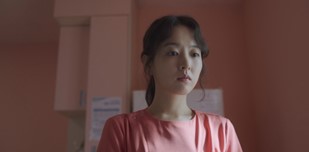
Jung Da Eun (played by Park Bo Young)
The structure of "Psychiatric Ward" is a common unit drama model. On average, each episode involves one patient and one disease. Most patients are discharged successfully after receiving treatment. Although discharge from the hospital does not mean recovery, "Psychiatric Ward" presents the "treatment" process in a rather simple and idealistic way. In reality, the treatment of many mental illnesses requires a long period of time, and it is not just the heroine who enlightens the patient with a few words and suddenly becomes enlightened.
As a result, "Psychiatric Ward" has a slightly dull start. If you have expectations for a medical drama, you may be disappointed. However, as the plot progresses, as more and more cases appear, and as the "distance" between various mental illnesses and us becomes closer, the "goodness" of "Psychiatric Ward" gradually becomes apparent.
Different from previous dramas about mental illness, "Psych Ward" is a truly concentrated "industry drama" with mental illness as the theme and for mentally ill people. But it is not a traditional medical drama. Although the drama covers the treatment of diseases, doctor-patient relationships and other medical drama content, it is not the focus of expression; "Psychiatric Ward" is closer to a detailed popularization of mental illness. It strives to The warm narration full of humanistic care clarifies the audience's many misunderstandings about mental illness.
First, are we that far removed from mental illness?
Many people's first reaction is that mental illness is distant, rare, and "scary." In the demonization of public opinion, "mental illness" is a derogatory term with a strong negative color and is often used to curse people; mental patients in the news are often associated with vicious incidents such as hurting people, which stimulates the public's understanding of mental patients. of fear and rejection. Mental illnesses such as depression and autism are relatively common, but many patients are unwilling to call them "mental illnesses" and prefer to use titles such as "mental illness" and "physical illness" to avoid others calling them "mentally ill." View yourself through colored glasses.
But in fact, there are many types of mental illnesses, and their incidence is much wider than we imagine. Almost every episode of "Psych Ward" presents a case involving bipolar disorder, social phobia, panic disorder, paranoid delusions, pseudodementia, paranoia, PTSD, borderline personality disorder, depression, schizophrenia, etc. Mental illness.
Depression is relatively well known to the public. According to the "2022 National Depression Blue Book" (released in August 2022), there are currently 95 million people suffering from depression in our country, which is equivalent to 1 in 15 people. This ratio is beyond the awareness of many people - Do I have one around me? The truth is: many people have mental illness, but they never know it. Instead, they think it’s because they think too much and because their hearts are weak. Some people push through it, while some people don’t cross that hurdle and are considered to have cheated. Pointed horns.
In the same way, many diseases in "Psychiatric Ward" are the first time for the audience to hear about them. Even though their incidence rate is not low, because of their "ignorance" about mental illness, very few people actually seek treatment.
The causes of illness almost all come from daily life. For example, a daughter has never had a self because of her mother's excessive control since she was a child, and she suffers from bipolar disorder;
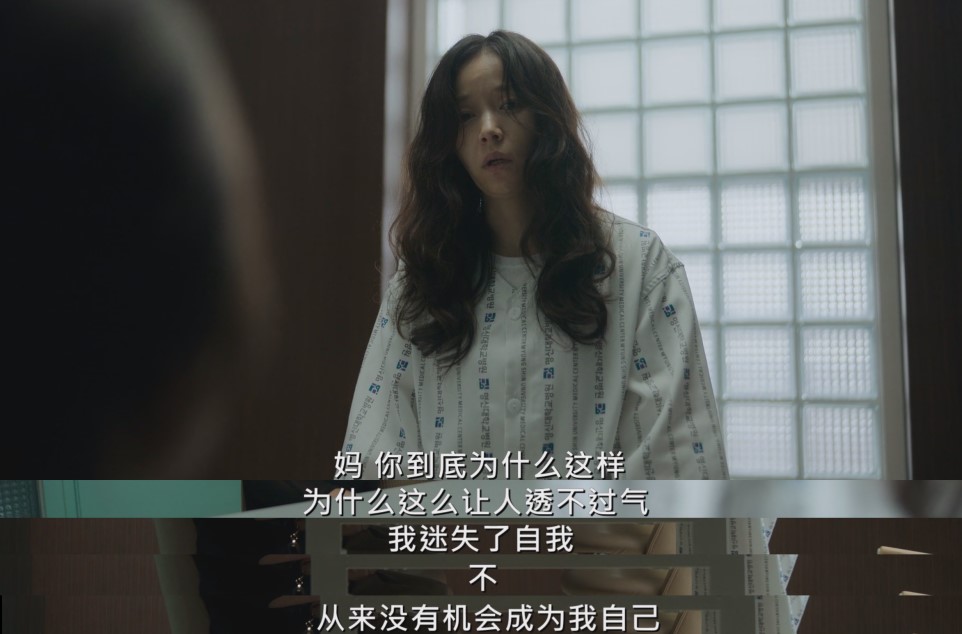
A daughter who loses herself under the control of her mother
Social beasts who are often led by PUAs in the workplace develop strong self-doubt and obsessive-compulsive symptoms. They suffer from mental breakdown due to low self-esteem and suffer from social phobia;
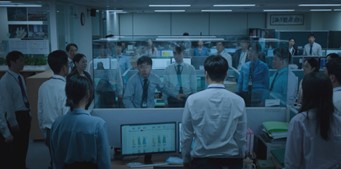
A patient with social phobia who feels like he is being watched behind a glass cover
After an outstanding young man entered a large factory, he was oppressed by the high-intensity work and life burdens and was unable to breathe. Sometimes he would suddenly enter a state of heart palpitations, headaches, dizziness, and difficulty breathing. He suffered from panic disorder;
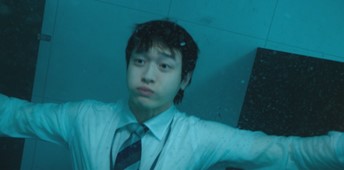
Panic attacks feel like drowning
Working women who are exhausted between work and family have been trapped in emotions such as self-blame, fatigue, and boredom. They have also developed pseudodementia due to depression, poor memory, and lack of concentration;

An elite woman suffering from pseudodementia and falling into loneliness
Preparatory students who have failed the public examination many times in a row are reluctant to give up because the sunk cost is too high. Failure after failure intensifies the sunk cost and gradually disintegrates self-confidence. Only in the world of "delusion" can he become a hero and experience the taste of victory...

Delusional patients entering a fantasy world
"Psychiatric Ward" uses exquisite images to visualize the feelings of some mental illnesses, allowing the audience to get as close as possible. For people with social phobia, they often feel that they are in a glass cover, and people around them seem to be talking about themselves; for people with panic disorder, the feeling of panic is like drowning; when a person enters In a state of severe depression, seemingly normal diet and daily life have become very difficult. He is like falling into a swamp, sinking deeper and deeper, unable to escape by willpower...
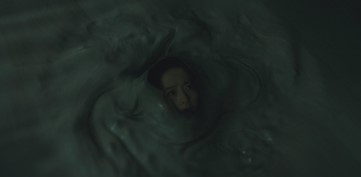
A depressed patient who seems to be trapped in a swamp
"Psychiatric Ward" may make some viewers realize that they are sick. It’s not that you are not strong enough, it’s not that you are pretentious, it’s not that you are sentimental, you are just sick, you just don’t know you are sick.
Second, how do we view mental illness?
De-stigmatization is a common answer for this type of drama. For example, mentally ill patients also have emotions, anger, sorrow, and joy. Most of them are kind and innocent people. We should not discriminate against them. This statement is correct, but not "precise" enough.
The reason why "Psychiatric Ward" has the attribute of "popularizing science" is that it does not start from the perspective of the "patient" and try to "normalize" the "patient" to achieve reconciliation; it starts from the perspective of "disease" and treats mental illness. The disease is "normalized" so that the public can take it seriously. As the lines in the play say, "When your psychological immunity is weakened, you should go to the psychiatrist, just like you go to the orthopedics department for a broken bone, and if you have a cold, you go to the internal medicine department, because anyone can become weak at any time."

People get colds and fevers, and people also have times when their psychological immunity declines.
Yes, mental illness is also a disease, just like colds, fevers, stomachaches and other diseases. We are not ashamed of colds, so why should we be ashamed of mental illness? When we have a bacterial infection, we know that we need to see a doctor and take antibiotics to heal faster. Why do we avoid seeing a doctor when we are depressed?
Ultimately, mental illness is both over-exaggerated and under-emphasized. People are afraid of being associated with mental illness, but when they have mental problems, they naively think they can get through it without taking medicine or seeing a doctor.
At this point, "Psychiatric Ward" corrects the error and puts things in perspective: Mental illness is a disease caused by a problem with the mental immunity. Please see a doctor in time! This is hardly a "self-healing" disease. The patient should get checked, take medicine, and be hospitalized.
Third, how to get along with mental patients? How to help them?
Words like "empathy" (feeling the same, empathizing with others, and being ready to help at any time) are very correct and very positive. We often hear calls like this - care more about the friends around you, listen to what they have to say, and provide them with more help.
But "Psychiatric Ward" uses the case of Zheng Daen suffering from PTSD to give kind people a reminder: If we don't have enough professional psychiatric knowledge, if we don't have a clear enough understanding of our own endurance, we can't become mental patients. As "doctors", we may not really be ready to be too involved in the lives of mental patients - negative and low moods are "contagious", and we may be caught up in them.
The treatment of mental illness requires professional and scientific methods. For example, for a patient with depression, we encourage him to go for a walk, or force him to go for a walk, thinking that we are taking him to relax, but for him, even eating and walking are "difficult", and our good intentions are only harmful to him. . For mental illness, instead of giving some mental encouragement and comfort, the disease can be cured by medicine. The first priority is to seek help from a professional doctor.

We are not professional doctors. We may do bad things with good intentions.
For the mentally ill, although it is difficult for ordinary people like you and me to "always comfort", we should at least do it without stigmatizing or using harsh words. When Zheng Duoen struggled to get out of depression and returned to the hospital, he was once opposed by the patient's family: How could a former mental patient become a nurse for mental patients? The head nurse's speech was shocking. She said: If Zheng Daen cannot return to work, then your family members who suffer from mental illness will not be able to go to work in the future, will they have to stay at home for the rest of their lives? Every family member must have asked: Why does my family member become a patient? But "mental illness is like this. No matter when and where, anyone may get an unpredictable disease. I advise everyone not to guarantee that you will not get this disease in your life."
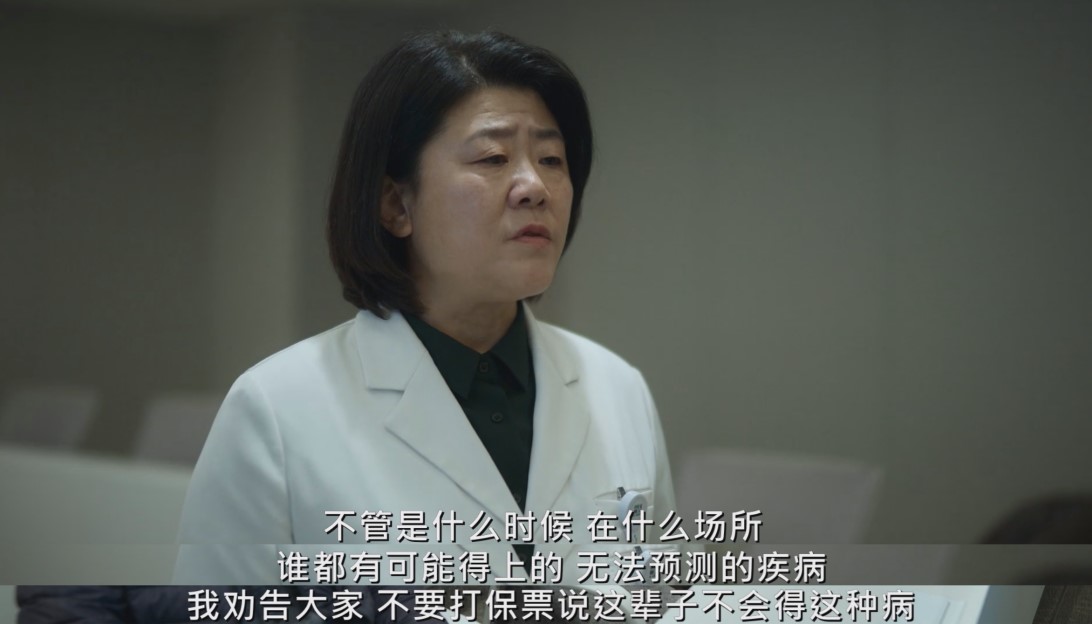
Just like everyone can catch a cold, our spirits are also susceptible to disease.
We are very close to mental illness. Our psychological immunity weakens at some point, and mental illness may take advantage of it. But don’t panic. If you have a cold, go see a doctor. If you have a mental illness, go see a doctor. After recovering from a severe cold, we still have to return to normal life, and the same goes for mental illness; no matter how long the darkness before dawn is, morning will come around every corner, and the same is true for psychiatric wards.


